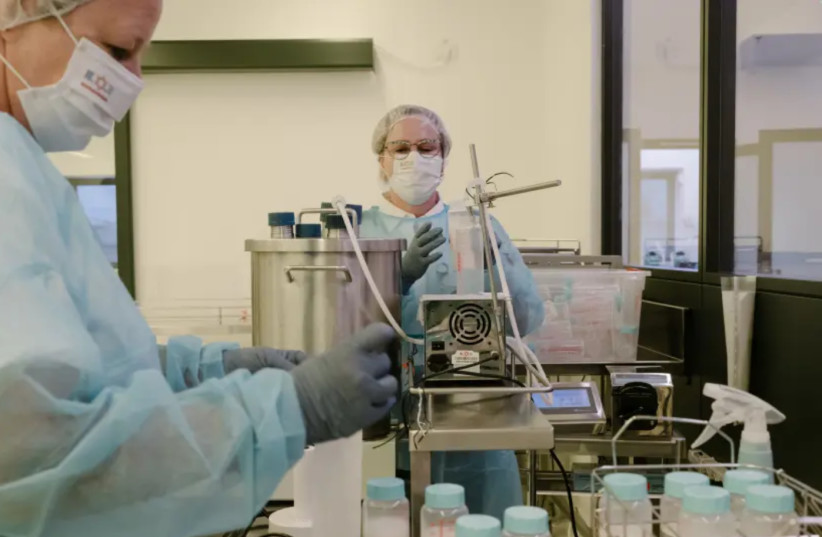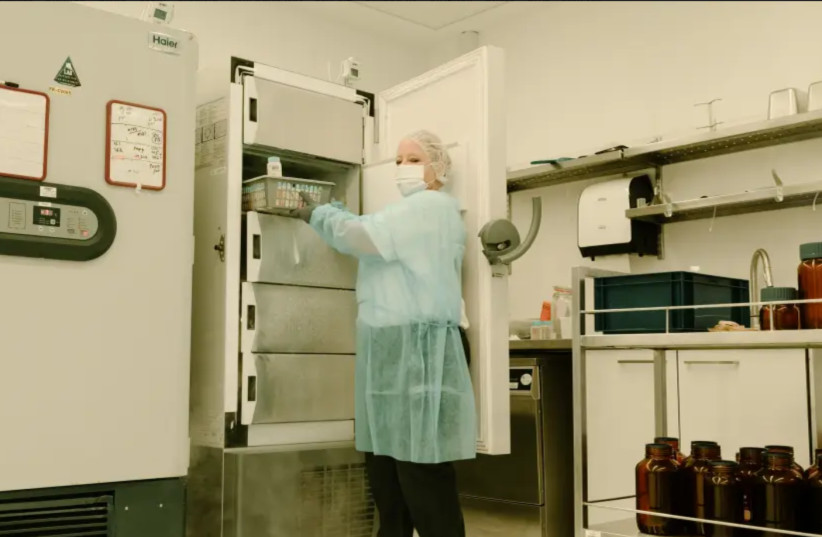The phrase "Don't cry over spilled milk" often reminds us of life's minor setbacks, but at Magen David Adom's (MDA) National Human Milk Bank of Israel in Ramla, every drop is invaluable. In this unique venue, voluntary donations undergo rigorous processing, including controlled pasteurization, before aiding premature and medically fragile infants.
This initiative is led by Dr. Sharron Bransburg-Zabary, the bank's director; Hadar Amit, the donor coordinator; and Miriam Farhat, a staff member. During the first three weeks of Operation Swords of Iron, the bank provided over 600 liters of breast milk to babies in dire need, including those orphaned or whose mothers were incapacitated or deployed. Before the conflict, about 750 donors were registered, and an additional 200 joined during the crisis, with 700 more awaiting approval.
Optimal quality and safety
Shortly before the war, Maariv visited this crucial facility. During that visit, Amit outlined the stringent donor screening process, ensuring both donor and recipient safety. Farhat highlighted the meticulous journey from collection to delivery, emphasizing cleanliness and safety. Bransburg-Zabary elaborated on the extensive testing and pasteurization procedures, ensuring optimal quality and safety.

Milk from different mothers
Bransburg-Zabary spoke passionately about the process, "The donated milk undergoes pasteurization and lab tests to ensure quality and measure characteristics like fat levels. Each batch combines milk from different mothers, exposing babies to antibodies against various diseases."
Farhat highlighted the meticulous care taken, "The milk undergoes extensive testing to guarantee cleanliness," ensuring the safety from pumping to delivery.
Amit shed light on the donor experience, explaining the thorough medical eligibility checks and the balance donors maintain between donating and caring for their own babies.

The bank's operations were significantly impacted by the conflict. Before the war, around 170 liters were distributed monthly, with each batch comprising milk from five or six mothers. The demand surged during the conflict, necessitating manual filling, sealing, and marking of each bottle, especially critical for infants weighing less than half a kilogram.
Bransburg-Zabari reassured the Israeli public about the safety and efficacy of the bank's processes, emphasizing their tripled capacity and rigorous quality control system. The bank also said it welcomes contributions from surrogates and mothers commemorating life after challenging births or losses.

Reflecting on the impact, Bransburg-Zabari said, "Women on the front lines is no longer a question mark. Mothers in reserves today should know their children are in good hands, receiving essential nourishment and a mother's love, regardless of biological ties."
One touching rescue story involves a premature baby whose life was saved by the bank's intervention. Bransburg-Zabari recounts, "the baby's mother called to thank me... At the end, this is much more than saving a life but something spiritual that comes with love, out of abundance."
During the interview, Prof. Eilat Shanar, Deputy Director of Blood Services at MADA, and Eli Bin, MADA CEO, both emphasized the critical role of the Milk Bank in supporting vulnerable infants, urging more lactating women to contribute to this noble cause.
